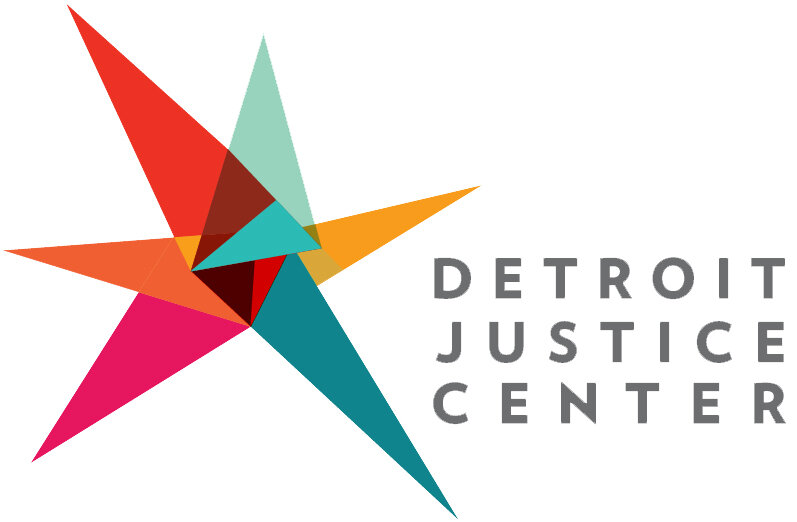Clearing Up Legal Issues for Incarcerated People Before They Come Home
In recent years, Detroit has significantly expanded access to education, skills training, and job opportunities for returning citizens. Despite these gains, economic prosperity remains elusive for many returning citizens who face legal barriers and lack legal assistance. Workforce development agencies complain that their trainees are hesitant to open bank accounts because of state-owed child support debt that accrued during their incarceration while other job trainees are caught in a vicious cycle of tickets for low-level offenses, missed court dates, warrants for failure to appear, and lost opportunities. Still others struggle to obtain a driver’s license or other proper identification, or to enroll in public benefits. Often, returning citizens are unable to obtain loans or rent apartments because their credit reports are marred by late payments, default, debt collection, repossession, or foreclosure that occurred during their incarceration. With these obstacles in mind, the Detroit Justice Center (DJC) has developed an in-reach legal pilot program to provide assistance to 200 returning citizens, half of whom are still incarcerated.
Since October of last year, we have been working in partnership with the Michigan Department of Corrections (MDOC) to provide re-entry legal services to individuals preparing for release at Robert Cotton Correctional Facility, Detroit Reentry Center, Parnall Correctional Facility, and the Women’s Huron Valley Correctional Facility. DJC’s Legal Services Practice is dedicated to removing legal barriers that prevent criminal justice-involved individuals from participating in the city’s economy. The data collected from our pilot program will be compiled by researchers at the University of Michigan’s School of Social Work, allowing us to better understand the full scope of legal barriers to successful re-entry. We aim to use this research to advocate for policies that serve this population, as well as creating a model of legal assistance that can be replicated elsewhere.
The Detroit Free Press recently wrote about a few of our in-reach clients and their struggle to get child support dispensed while building their lives and careers back up. Our attorneys work with clients in these circumstances regularly. Just last week, staff attorney Geoff Leonard assisted our client Mr. Pine* in clearing $67,000 worth of child support debt that had accumulated over his 27 year incarceration. Mr. Pine was already incarcerated in 1990 when DHS brought a paternity case against him, leaving him unaware that the court had begun charging him for child support. He remained unaware of the decision until 2009, at which time he contacted Friend of the Court, who told him that he shouldn’t concern himself with the matter as he was serving a life sentence. They claimed he could address it should he ever be released. In Michigan, child support judgements cannot be modified retroactively, leaving Mr. Pine in a position where 50% of his wages were being garnished upon his release in 2017, despite the fact that he had tried to deal with the issue and his children were now fully grown adults.
Other than child support, preliminary data has shown us that the biggest legal issues facing returning citizens are traffic violations, issues with credit reports, warrants and obtaining ID’s. For folks who have never been incarcerated, these may seem like minor nuisances, but they can have a rippling effect for our clients that impede them from gaining employment, housing, and public benefits and in some instances, lead to re-incarceration. While we were aware of these issues anecdotally through working with our clients, having independent researchers compiling data allows us to use what we’re seeing to innovate new solutions.
We are committed being led by our clients, their loved ones and our partners in the community. With this understanding, we will continue our pilot until the end of 2019 with the aim of increasing the likelihood that returning citizens will complete job training programs, obtain employment, and remain out of prison. It is our hope that the outcomes of this pilot can be used to do legal in-reach for formerly incarcerated people elsewhere, and potentially inform policy that benefits those most impacted by the criminal justice system.
Read more about our work with returning citizens here.
*Names have been changed to protect client privacy.


